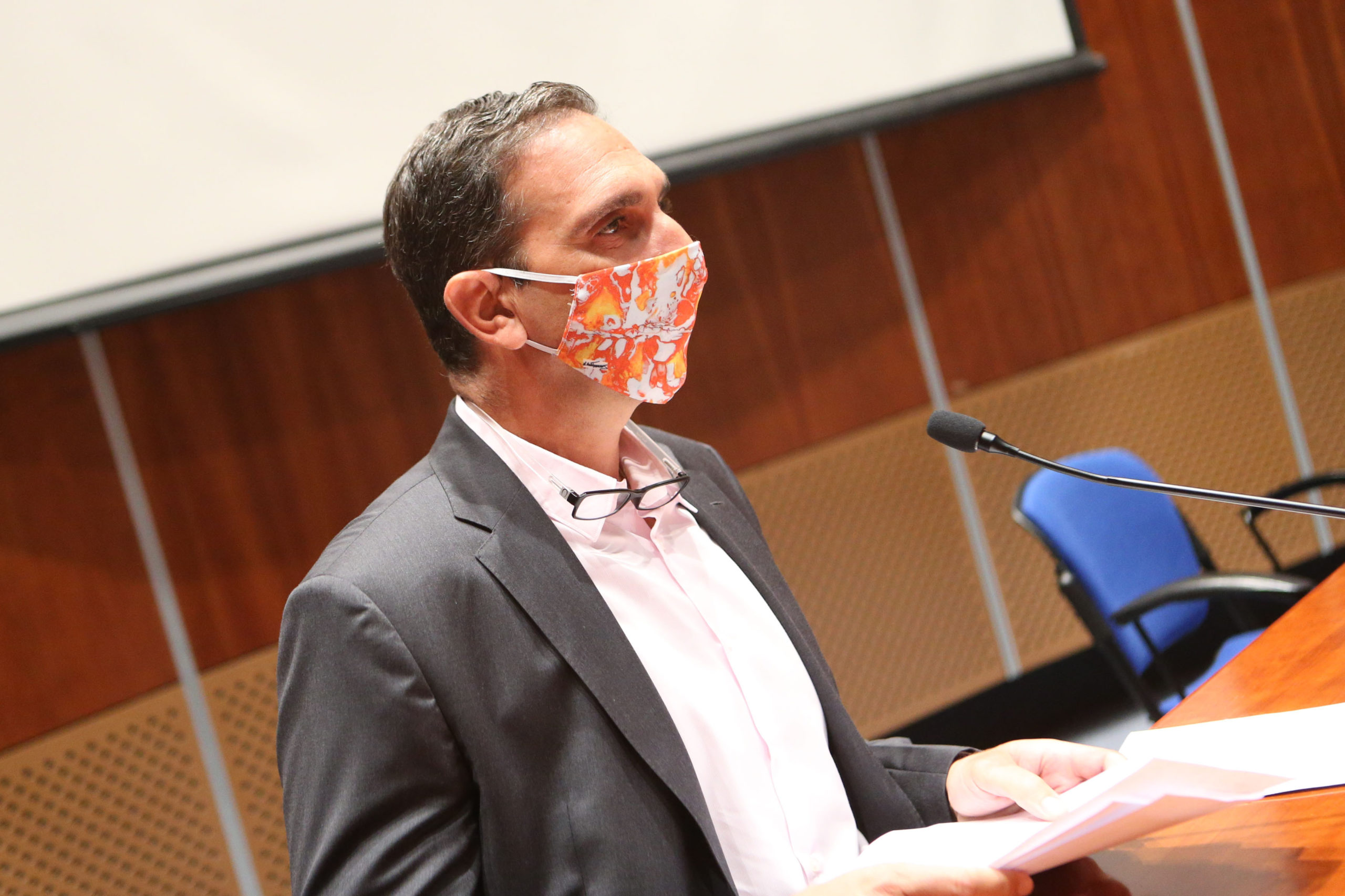Cyprus announced stricter measures on Wednesday for the coastal towns of Limassol and Paphos where coronavirus infections continue to spread at a higher rate than the rest of the island.
All sports events and under-18 activities in both towns are cancelled until the end of November, while children’s playgrounds and gyms will be closed, health minister Constantinos Ioannou announced, after an extraordinary cabinet meeting.
A late-night curfew that had been introduced in Limassol and Paphos is to be implemented to the rest of the island as well.
Ioannou said that no health protocols were being respected in playgrounds and no records were kept in order to help with contact tracing in the case of known Covid-19 infections, while gyms are regarded the highest risk grounds for transmissions.
Justifying the targeting of the two towns, he said that during the second half of October the infection rate in Limassol was 420 per 100,000 population and in Paphos 294 per 100,000.
The minister said that the benchmark issued by the European Centre for Disease Prevention and Control (ECDC) is 150 per 100,000.
Cyprus witnessed a surge in coronavirus infections in October, with the month accounting for two thirds of all the 5,100 cases reported since the pandemic started in March.
In an address to the nation prior to the announcement of the new measures, President Nicos Anastasiades said the government’s scientific advisors warned that if health and hygiene measures are not properly implemented, then “the repercussions will be asymmetric.”
He said that the gradual easing of measures after the first lockdown in April led to a sense of complacency, while some people even complained that the measures led to a limitation of freedoms of movement and expression.
Appealing directly to younger people, Anastasiades said that his intervention was “not only as president, but more so as a father and grandparent.
“The government is obliged to take additional measures to avoid the harsher measures that one after the other European countries are taking,” implying that a total lockdown was being avoided.
He said that Cyprus has pre-ordered vaccines for the entire population, and that his Labour and Finance ministers would announce additional measures on Thursday to protect workers and to support business with their operational costs.
Health minister Ioannou said that the measures were aimed at prevention and limiting the spread of Covid-19 at a local level.
He said the measures were grouped in three categories.
- National measures from November 5 to January 15, 2021:
Attendance at cinemas is limited to 50% of capacity, conferences can accommodate up to 250 delegates without any coffee break, retailers will give priority to the elderly and vulnerable groups at 9 am and 1-2pm, and masks will remain mandatory in all closed spaces where there are at least two persons.
For weddings taking place between November 13 and January 15, cocktail receptions are banned and dinners will be limited to at 150 people (down from 350 in earlier directives), with 6 persons per table, the same number as patrons per table in restaurants, cafés and bars.
- National measures from November 5 to 30:
Home visits are limited to 10 persons, restaurants, cafés and bars will close at 10.30pm, with the maximum allowance of 75 indoors and 150 outdoors, 6 persons per table.
A curfew is imposed from 11pm to 5am and workers ending a late shift must carry a relevant document. A maximum of 75 people are allowed for church and other services, unchanged from earlier directives, sports events will continue to be played without spectators, no more than 50 children in playgrounds, and children’s parties limited to 10 people, including the hosts.
- Measures for Limassol and Paphos from November 5 to 16:
There will be no junior sports and children’s activities, no under-18 team events and training, no group or contact sports, suspension of all children’s playgrounds and gyms.
In workplaces, the number of employees must be reduced to no more than 50% of the workforce and remote working is to be encouraged. There will be no contact among workers and different work hours and breaks must be implemented.
Where an individual cannot work in a confined space on his or her own, remote working is encouraged, in rotation, with the affected numbers not exceeding 50% of the total staff number.










